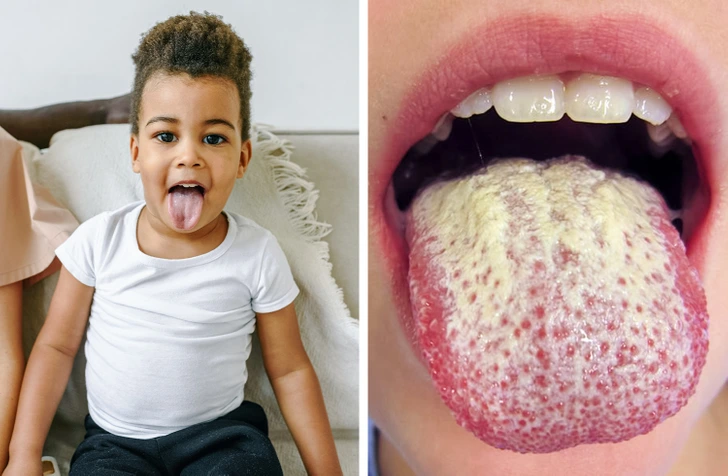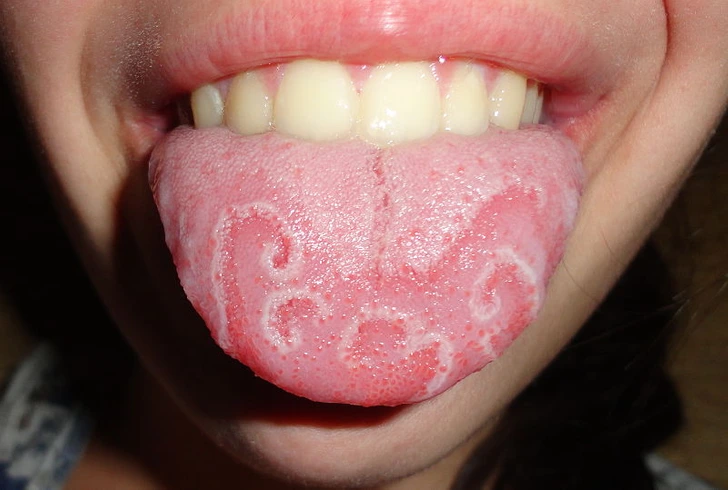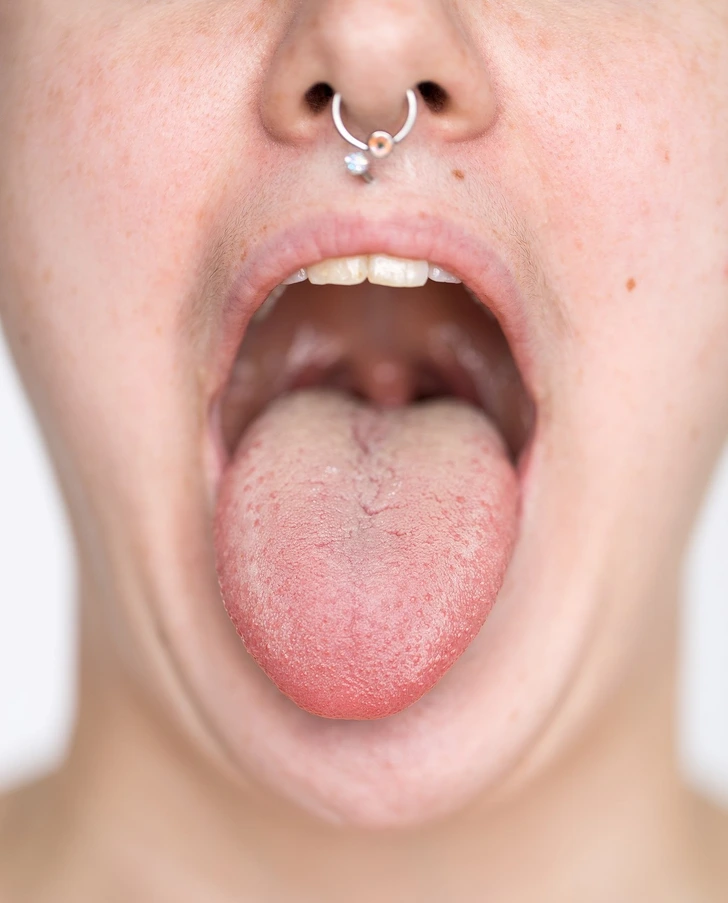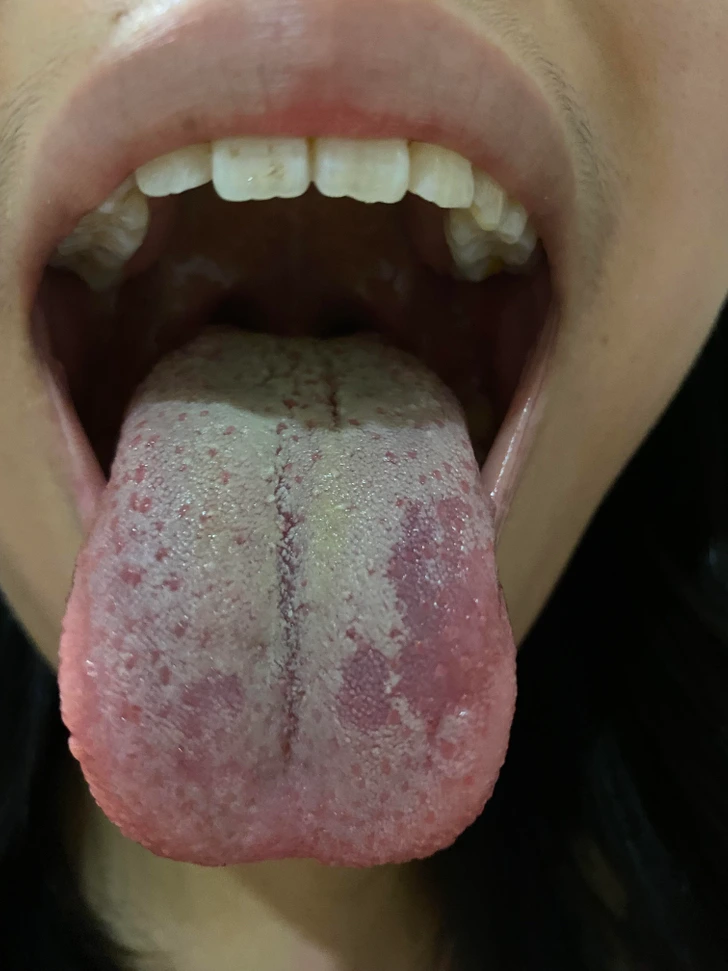Have you ever looked in the mirror and noticed your tongue covered in a white coating? While it may seem like a minor issue, a white tongue can reveal important clues about your health. In some cases, it’s harmless and temporary, but it can also indicate underlying conditions that need attention. This article explores what causes a white tongue, what it means for your health, and how you can treat it naturally.
What Is a White Tongue?

A white tongue happens when a thick, white coating or patches form on the surface of the tongue. This coating can cover the entire tongue or appear in specific areas. In some cases, it might even look like there are tiny white “hairs,” which are actually inflamed taste buds trapping bacteria, food particles, and dead cells.
A healthy tongue should appear pink and moist. When it develops a white, yellow, or brown coating, it might indicate a health issue. For example, a yellow tongue could signal liver problems, while a bright red tongue might suggest a vitamin deficiency.
Why Does the Tongue Become White?
The most common reason for a white tongue is the accumulation of debris, bacteria, and dead cells on the tongue’s surface. However, several other factors can contribute to this condition:
- Oral Thrush: A fungal infection caused by an overgrowth of Candida.
- Dehydration: A dry mouth encourages the buildup of dead cells and bacteria.
- Poor Oral Hygiene: Failing to clean the tongue regularly can lead to white plaque.
- Geographic Tongue: A harmless condition where parts of the tongue lose their natural coating, creating a map-like appearance.
- Smoking: Tobacco irritates the tongue, leading to discoloration.
- Medications: Antibiotics and corticosteroids can disrupt the mouth’s balance of bacteria.
Other contributing factors include a weakened immune system, poor diet, advanced age, and poorly fitted dentures.
Tongue Thrush: A Common Cause of White Tongue
One of the most frequent causes of a white tongue is oral thrush, also called candidiasis. This condition occurs when Candida, a type of yeast naturally present in the mouth, grows out of control.
Tongue thrush typically appears as creamy white lesions on the tongue, gums, or inner cheeks. It can also cause redness, soreness, or difficulty swallowing. Those with weakened immune systems, diabetes, or recent antibiotic use are at a higher risk of developing oral thrush.
Fortunately, tongue thrush is treatable with antifungal medications. Maintaining good oral hygiene and reducing sugar intake can help prevent future occurrences.
White Tongue and Piercings
If you’ve recently gotten a tongue piercing, you might notice a white coating around the area. This is a normal response to increased bacteria in the mouth during the healing process.
Using an antibacterial mouthwash can keep the piercing clean and minimize white buildup. Additionally, avoiding spicy or acidic foods can prevent irritation during healing.
If the white coating persists for more than two weeks or is accompanied by swelling or pain, it’s essential to consult a healthcare professional.
How to Treat White Tongue Naturally

If you’re tired of seeing a white coating on your tongue, several natural remedies can help improve its appearance and health. These simple steps can be incorporated into your daily routine:
- Brush Your Tongue: Use a soft toothbrush to gently clean your tongue while brushing your teeth. This removes bacteria and debris.
- Try a Tongue Scraper: A tongue scraper is specifically designed to clean the surface of the tongue and reduce buildup.
- Stay Hydrated: Drinking plenty of water prevents dry mouth and flushes away dead cells.
- Use a Saltwater Rinse: Gargling with warm salt water can cleanse your mouth and kill bacteria.
- Maintain Good Oral Hygiene: Brush twice a day, floss regularly, and use fluoride mouthwash to keep your mouth clean.
- Avoid Irritants: Limit your intake of spicy, salty, or acidic foods that can inflame the tongue.
- Eat a Balanced Diet: Include foods rich in vitamin B12, iron, and other essential nutrients to support oral health.
By staying consistent with these habits, you’ll likely notice significant improvement in just a few days.
When to See a Doctor or Dentist

While most cases of white tongue are harmless and temporary, there are situations where professional medical advice is necessary. Consider visiting a doctor or dentist if:
- The white coating lasts longer than two weeks.
- You experience pain, swelling, or difficulty eating and speaking.
- Red or sore areas accompany the white patches.
- You have an underlying health condition or a weakened immune system.
A healthcare provider can determine whether the white tongue is due to a benign cause or a more serious issue, such as an infection or oral cancer.
Preventing White Tongue with Lifestyle Changes
Prevention is always better than cure, and adopting a healthy lifestyle can keep your tongue clean and pink. Here are some tips:
- Limit Sugary Foods: Excess sugar feeds harmful bacteria and yeast in the mouth.
- Quit Smoking: Tobacco irritates the tongue and contributes to plaque buildup.
- Practice Mindful Eating: Chewing food thoroughly and drinking water helps remove debris from the tongue.
- Regular Dental Checkups: Professional cleanings can address any underlying oral health issues.
Conclusion

A white tongue might seem like a minor issue, but it can sometimes be a sign of deeper health concerns. Understanding its causes and learning how to treat it naturally can help you maintain better oral hygiene and overall health.
Most cases of white tongue are easily resolved with simple remedies like brushing your tongue, staying hydrated, and using a saltwater rinse. However, if the condition persists or is accompanied by other symptoms, don’t hesitate to seek medical advice.
Your tongue is an essential part of your overall well-being. Keeping it healthy and clean is a step toward better health. Remember, a healthy tongue is a pink tongue!


